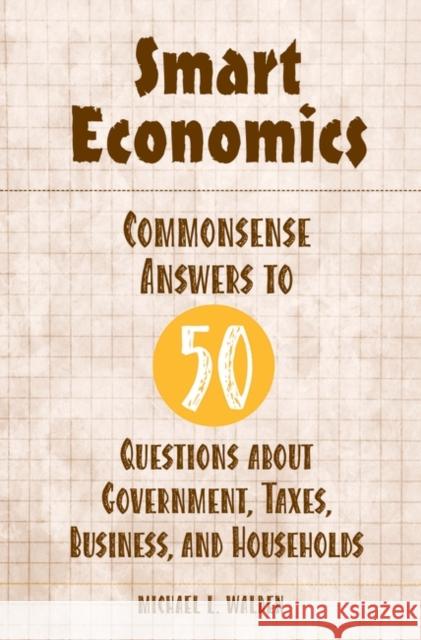Smart Economics: Commonsense Answers to 50 Questions about Government, Taxes, Business, and Households » książka
Smart Economics: Commonsense Answers to 50 Questions about Government, Taxes, Business, and Households
ISBN-13: 9780275987503 / Angielski / Twarda / 2005 / 216 str.
Budget deficits, gas prices, health care costs, social security, job security.... Anxiety over the economy pervades our daily lives--from reports on the early morning newscasts to gossip around the water cooler to dinner table debate. Yet most citizens are woefully ignorant when it comes to understanding how the economy works and how to interpret the impact of policies and business decisions. It's easy to slip into generalities: government spending is wasteful, taxes are too high, good-paying jobs are being shipped overseas, Americans don't save enough. Other issues become hijacked by political partisans to advance their agendas: trade must be fair , tax cuts will pay for themselves , there will be no money left in the social security till after the baby boomers loot it In Smart Economics, Michael Walden provides an antidote: take 50 of today's top economic issues and explain their meaning, implications, and potential solutions in a logical, straightforward, commonsense, and non-partisan way. Has Government Spending Been Out of Control? Is Profit Bad? Walden applies basic economic concepts and logical argumentation to help readers get their bearings--to separate fact from fiction and ultimately make better economic decisions themselves. The result is an entertaining and highly informative introduction to economic principles and their influence on our behavior.In Smart Economics, Michael Walden provides an antidote: take 50 of today's top economic issues and explain their meaning, implications, and potential solutions in a logical, straightforward, commonsense, and non-partisan way. From Has Government Spending Been out of Control? to Is Profit Bad? to Why Are Pro Sports Stars Paid So Much? Walden demystifies the dismal science, using basic concepts and logical argumentation to help readers get their bearings--to separate fact from fiction and ultimately make better decisions, when it comes to spending, investing, saving, and voting. The result is an entertaining and informative introduction to economic principles and their influence on our behavior.











